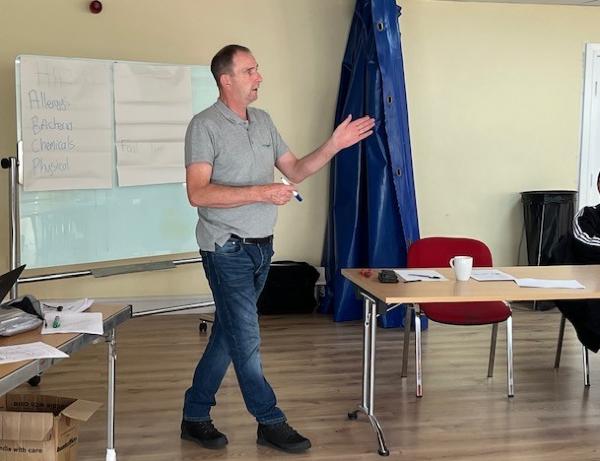We caught up with SafeHands' Food Safety/HACCP adviser Damien O'Hare recently to discuss some of the issues food businesses face with their health and safety arrangements and why it's so important for them to have their training delivered in-person and onsite at their premises.
Hi Damien, why do employees in food businesses need Food Safety/HACCP training?
Well, it’s the law. Since 1998, all food businesses in Ireland have been legally required to have a food safety management system based on the principles of HACCP in place. And the Food Safety Authority of Ireland and the HSE actively ensure that this law is kept. The FSAI’s monthly list of enforcement and closure orders is proof of that!
Apart from your legal responsibilities as a food business owner, you need to have your staff strained in HACCP in order to protect your customers – and therefore your business.
How important is it to get onsite Food Safety/HACCP training?
It’s essential to get your Food Safety/HACCP training carried out onsite at your premises because it is a course that is specifically tailored to your particular business and your employees’ needs.
I leave time after the training course for any questions that staff may have and, of course, there always are issues that need to be cleared up. It’s an essential part of the onsite training that SafeHands provides. You don’t get that with online Food Safety/HACCP training!
What other reasons are there for a food business not to complete their employee training online?
Look, food safety is more than a box-ticking exercise on a computer. It needs to be done properly – the welfare of your customers and, therefore, your business depends on it. Good Food Safety/HACCP practices and systems are about the quality of the training, and SafeHands provides that.
Which level of Food Safety/HACCP training should employees of a food business complete?
You need to decide which course suits your needs, Level 1 or Level 2 Food Safety/HACCP? In my experience, however, 95 per cent of food business will need the Level 2 course as this covers all the bases.
What are the consequences for a food business of not having proper training and certification?
It goes without saying that there are heavy consequences if your food business has not had its staff properly trained and certified in Food Safety. These range from food poisoning, which could lead to serious illness or death, to an insurance claim for negligence against your business. As the FSAI likes to remind those in the industry whenever it gets the chance, there have been many prosecutions of food business owners for negligence. There is also the distinct possibility that you will lose your business.
How long does the training take?
As long as it takes to cover the course syllabus and answer your staff members’ questions.
What should a business do if it needs quality Food Safety/HACCP training?
As we always say at SafeHands Health & Safety Solutions, it costs nothing to talk. So contact our office to discuss your health and safety requirements and they can organise either myself or another one of our advisers to deliver Food Safety/HACCP training onsite at your premises at a time that suits you and your business.

